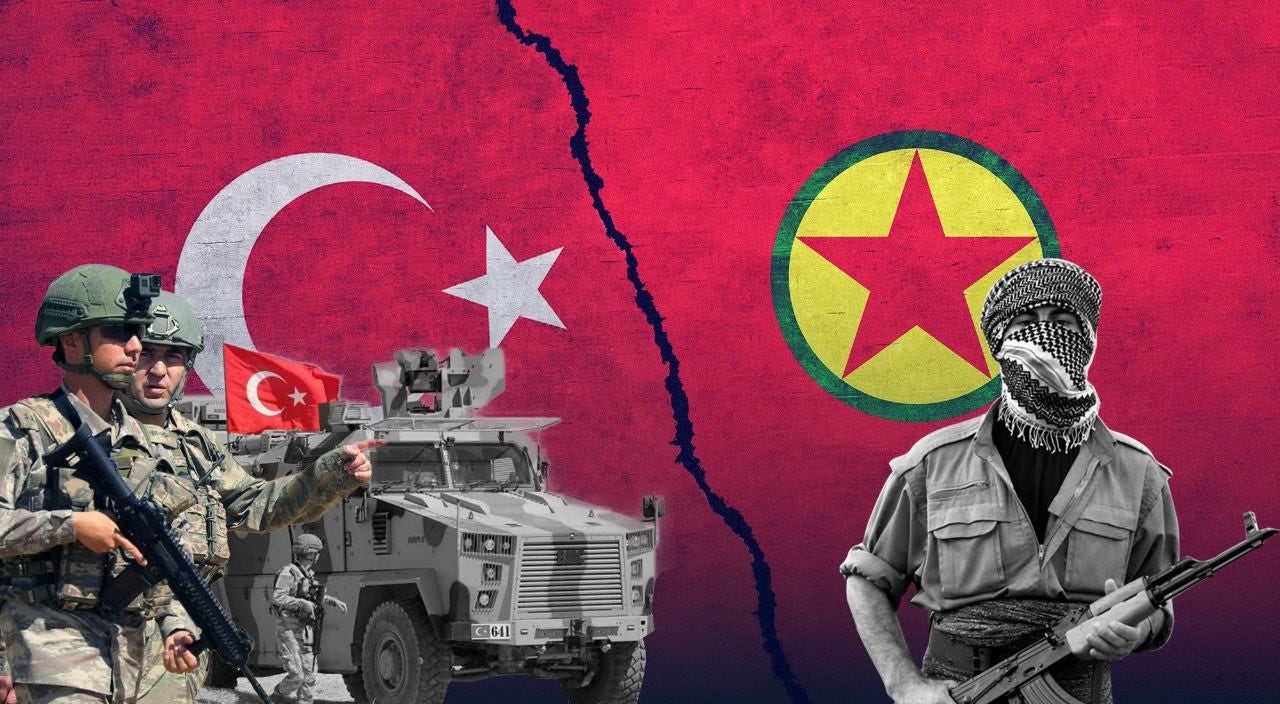THE (KURDISH) KNIGHT'S MOVE
Öcalan is trying again. The leader of the PKK, in prison for twenty years, is trying again to relaunch negotiations with Ankara, ordering the party to dissolve. He had already made the same attempt in 2012, which then failed. This time, however, it seems that everything is happening with the full agreement of the Turkish government, so the operation should be successful.
Most likely, the decision to give the green light is linked more to the situation in Syria than to that in Turkey. The Syrian Democratic Union Party (YPD), in fact, is in effect an offshoot of the PKK; the same turning point that led the Syrian Kurdish forces to inaugurate a season of grassroots democracy, culminating in the 'republic of Rojava', was born from a political-ideological reflection by Ocalan himself. And to date, the SDF (which is essentially based on the YPG, the armed wing of the YPD) is the main obstacle to a pacification of Syria, in the form of a de facto protectorate of Ankara.
For the moment, however, the Kurdish forces in Syria seem to have received Ocalan's appeal in a substantially lukewarm way; Salih Muslim, leader of the YPG, declared: "if we are allowed to operate as a political group, we will lay down our arms". While the commander of the SDF, while expressing appreciation for the content of the appeal, specified that this "concerns the PKK, not us". Obviously, before giving up the armed struggle, the SDF will want certain guarantees of an important political role in the Syrian government, and will most likely ask for some form of autonomy for the region currently under their control.
An operation of this kind, although not very simple, is certainly possible, since it would allow the Turks to proceed with the normalization of Syria. To begin with, the SNA (Syrian National Army, the group most tightly controlled by Ankara), freed from the need to fight the SDF, could proceed to integrate into the new Syrian army, rebalancing the weight of the various factions; something that the SDF could also do, which would be a way of not completely disarming...
In view of the American disengagement from Syria, it becomes important for the Kurds to find a pacifying solution, since the American withdrawal would leave them completely without political-military cover. An agreement with the Turks, therefore, could represent a way out, making a virtue of necessity.
It will be no less interesting to see what the repercussions will be within Turkey itself. On the one hand, the PKK has often moved in an ambiguous manner, fueling suspicions of coordination with foreign countries, and it is therefore to be understood whether some clandestine cells could escape the agreement. This will obviously depend in part on the terms of this, especially with regard to the inevitable amnesty that will have to accompany it.
This will certainly have positive repercussions for the HDP (Halkların Demokratik Partisi), the Turkish political formation that brings together the Kurds and the left-wing formations. Harshly repressed for years, it still represents the third political force in the country, with about 10% of the votes. In the last elections in 2023, it presented itself as the Green Left (again for judicial issues), gathering 65 parliamentarians. If the pressure from the Turkish justice system eases, and its currently imprisoned leaders are freed, it could recover consensus, and become the deciding factor in the 2027 elections.




